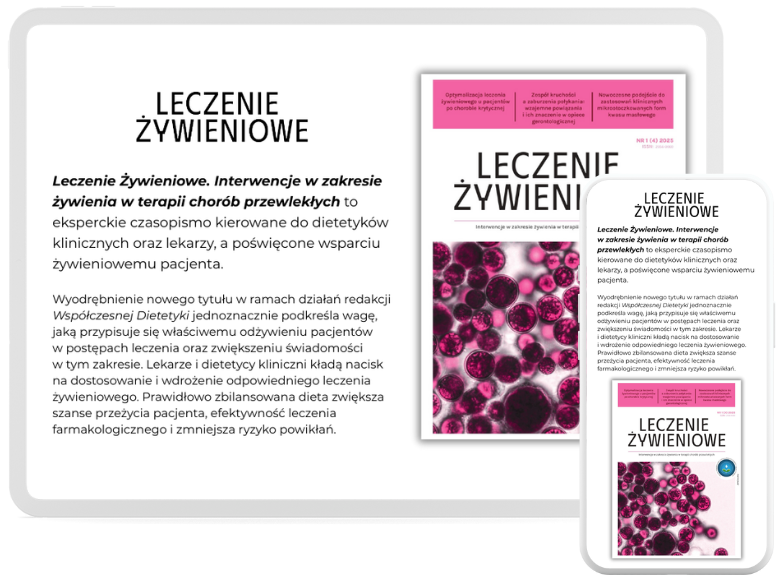Strategie żywieniowe wspierające proces adaptacji jelitowej u chorych z zespołem krótkiego jelita
Adaptacja jelitowa jest naturalnym procesem kompensacyjnym występującym po rozległej resekcji jelita, np. w leczeniu choroby Leśniowskiego-Crohna, niedokrwienia, urazu9,10,11. Adaptacja jest poprzedzona stopniową poprawą tolerancji żywienia dojelitowego12.
Wstęp
Pacjenci z zespołem krótkiego jelita (ang. short bowel syndrom, SBS) wymagają przewlekłego leczenia żywieniowego pozajelitowego i podawania płynów drogą dożylną. Głównym celem leczenia pacjentów z SBS jest osiągnięcie autonomii jelitowej. Poprawa funkcji jelita w szczególności odnosi się do zwiększonego wchłaniania makro- i mikroelementów oraz płynów. Po wyrównaniu stanu odżywienia i opanowaniu strat składników odżywczych, elektrolitów i wody można rozpocząć żywienie drogą przewodu pokarmowego. Odpowiednio prowadzone żywienie doustne wpływa korzystnie na proces adaptacji jelita. Celem tego przeglądu literatury jest przedstawienie strategii żywieniowych promujących adaptację jelitową u chorych z SBS.
Chcesz przeczytać więcej?

Pełna treść artykułu, wraz z załącznikami do pobrania, dostępna jest dla prenumeratorów czasopisma, po zalogowaniu się.
O autorze

mgr Karolina Goral
czytam artykułyPrzewodnicząca Sekcji Dietetyki Polskiego Towarzystwa Żywienia Klinicznego. Łączy pracę nauczyciela akademickiego z pracą dietetyka w szpitalu klinicznym. Od 2009 roku pracuje jako dietetyk w Uniwersyteckim Szpitalu Klinicznym nr 4 w Lublinie. Aktualnie kierownik Działu Dietetyki USK nr 4 w Lublinie i dietetyk w Poradni Leczenia Żywieniowego USK 4 w Lublinie. Asystent w Zakładzie Żywienia Klinicznego Uniwersytetu Medycznego w Lublinie.



